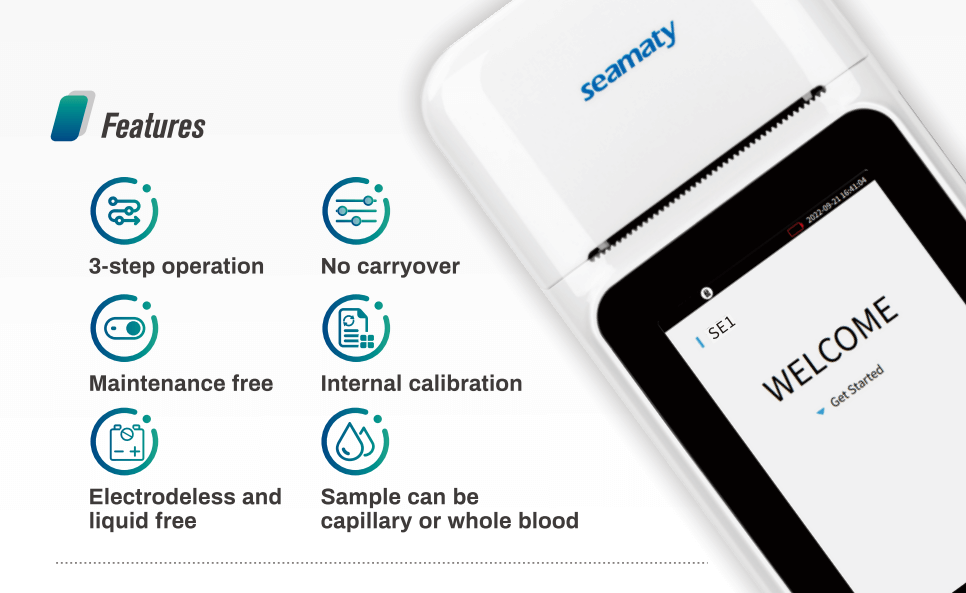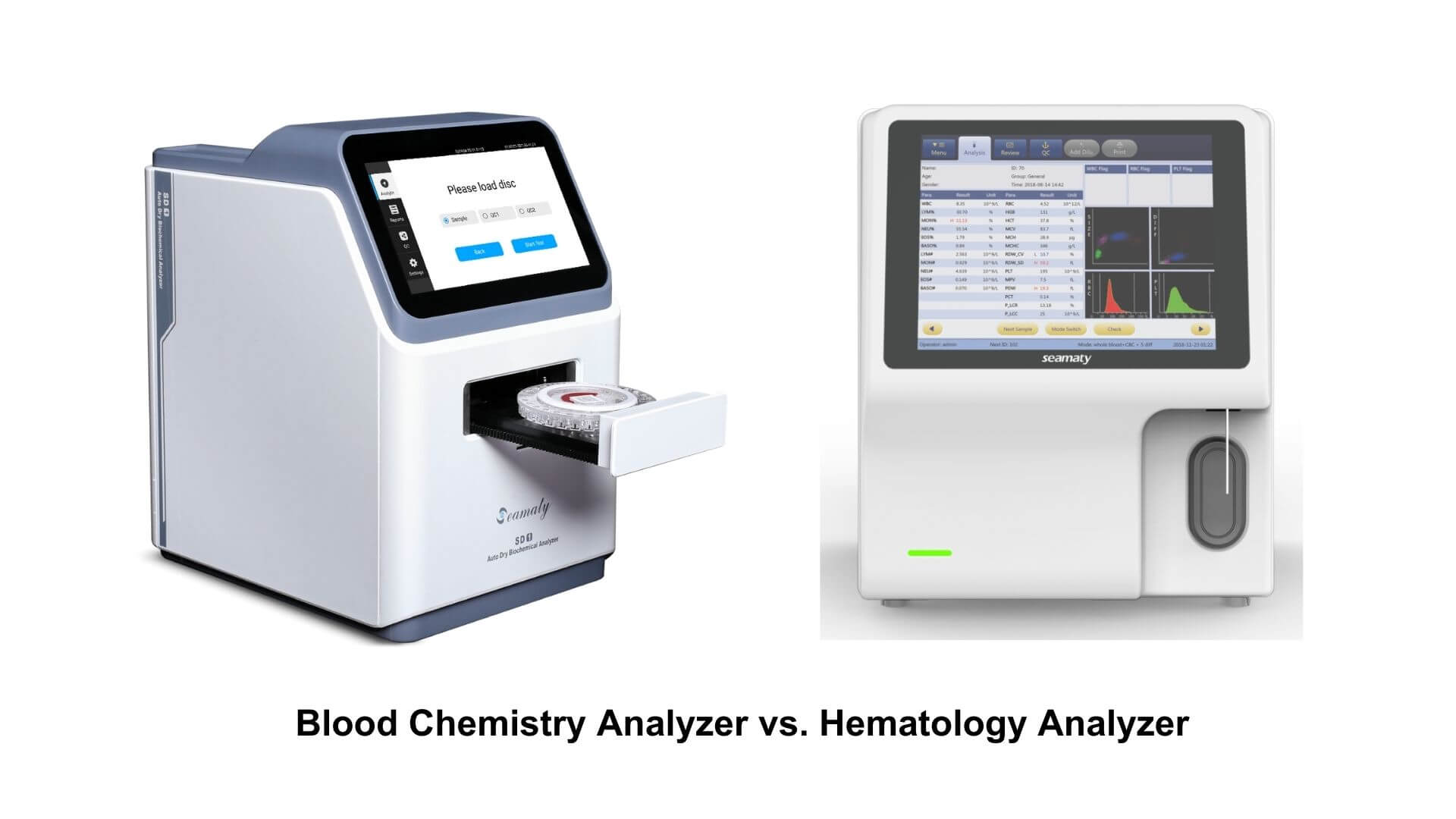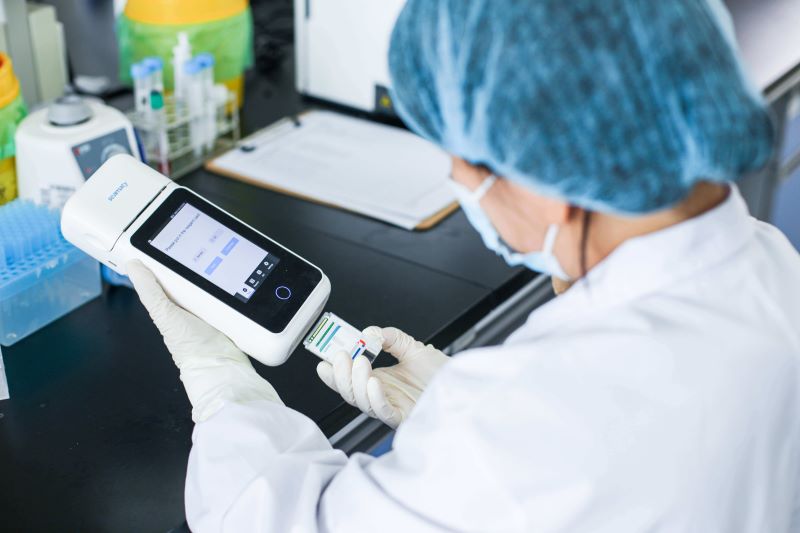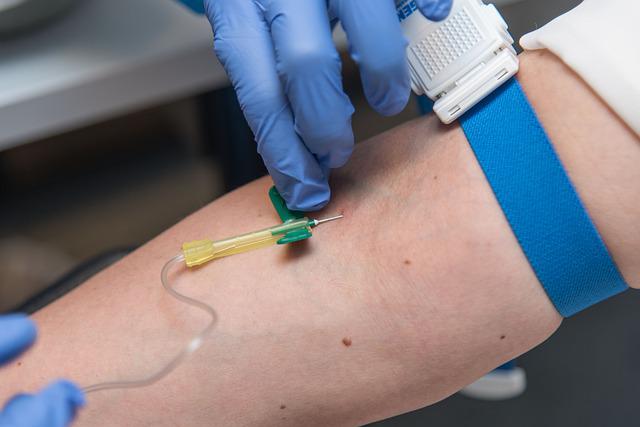release time:2023-09-06 11:19:45
In the world of healthcare, timely and accurate diagnostic tools play a pivotal role in patient care. Among these tools, electrolyte analyzers stand out as critical instruments that assist healthcare professionals in assessing a patient's electrolyte balance. In this article, we'll delve into the world of electrolyte analyzers, exploring what they are, their importance in laboratory settings, the underlying principles of their operation, and how to effectively use them. We'll also touch upon the Seamaty SE1 portable electrolyte analyzer, a device designed to enhance patient care across various healthcare settings.
An electrolyte analyzer is a specialized medical device designed to measure the concentration of electrolytes in a biological sample, typically blood or serum. Electrolytes are essential ions, including sodium (Na+), potassium (K+), chloride (Cl-), bicarbonate (HCO3-), and calcium (Ca2+), that play crucial roles in various physiological processes within the human body. The accurate measurement of these electrolyte levels is vital for diagnosing and managing a wide range of medical conditions.
Electrolyte imbalances can have serious health consequences, affecting the heart, muscles, and nervous system. Therefore, electrolyte analyzers are invaluable tools for healthcare providers to make informed decisions about patient care.
In clinical laboratories, electrolyte analyzers are commonly used to assess the electrolyte levels in patients' blood samples. This information is critical for diagnosing and managing conditions such as dehydration, kidney disease, heart conditions, and acid-base imbalances.
Compared to traditional methods, which can be time-consuming and labor-intensive, electrolyte analyzers offer a rapid and accurate solution for electrolyte testing. They also require smaller sample volumes, making them less invasive for patients.
Beyond clinical applications, electrolyte analyzers are essential tools in medical research, enabling scientists to study the effects of electrolyte imbalances on health and disease.
Before using an electrolyte analyzer, it's crucial to calibrate the device and perform quality control checks to ensure accurate results. Proper sample collection and handling are essential to prevent contamination and ensure the integrity of the analysis.
Running a test on an electrolyte analyzer involves a step-by-step procedure. The device measures the ion concentration in the sample and provides results that healthcare professionals can interpret to make informed decisions about patient care.
Regular maintenance is essential to keep the analyzer in optimal working condition. Healthcare professionals should also be aware of common issues and their solutions to ensure the accuracy of test results.

Electrolyte analyzers typically employ electrochemical sensors, such as ion-selective electrodes (ISEs), to detect specific ions in the sample. These sensors work based on the principles of electrochemistry and ion exchange.
The analyzers utilize various measurement techniques, including direct potentiometry and indirect ion-selective electrode methods, to determine ion concentrations accurately.
The device measures the electrical potential difference generated when the ions in the sample interact with the selective electrodes, allowing for the calculation of ion concentration.
In recent years, technological advancements have led to the development of portable electrolyte analyzers like the Seamaty SE1. This handheld electrolyte analyzer is specifically designed to enhance patient care across various healthcare settings. Its compact size and user-friendly interface make it ideal for use at the hospital bedside, physician's office lab, urgent care clinics, and even retail clinics. The portability and convenience of the device allow healthcare professionals to conduct electrolyte analysis wherever and whenever needed, eliminating the need for sample transportation and reducing turnaround times.

Electrolyte analyzers offer rapid results, high accuracy, and the ability to analyze multiple electrolytes simultaneously, making them indispensable tools for healthcare providers.
However, it's essential to be aware of potential errors and limitations, such as sample contamination or interference from certain medications or substances, which can affect the accuracy of results.
Proper safety protocols should be followed when handling biological samples and reagents to protect both healthcare professionals and patients.
The field of electrolyte analysis continues to evolve, with emerging technologies and ongoing research aimed at improving the accuracy and speed of analysis. Future trends may include further miniaturization, enhanced connectivity, and integration with electronic health records.
Electrolyte analyzers are indispensable tools in modern healthcare, enabling timely and accurate assessment of electrolyte imbalances critical to patient care. Understanding their principles of operation and proper usage is essential for healthcare professionals. Additionally, devices like the Seamaty SE1 portable electrolyte analyzer exemplify the ongoing innovations in this field, further enhancing patient care by providing convenient and efficient testing options.
In a world where rapid and accurate diagnostics are vital, electrolyte analyzers continue to play a crucial role in maintaining and improving the health of individuals worldwide.
For more in-depth information on electrolyte analyzers and related topics, you can explore the following resources:
[1]. Dimeski, G. (2012). The measurement of electrolytes: Part I—The principles and implementation of conductivity. Biochemia Medica, 22(3), 163-176.
[2]. Lee-Lewandrowski, E., Lewandrowski, K., & Januzzi, J. L. (2002). Electrolyte disorders and cardiovascular disease. Clinics in Laboratory Medicine, 22(1), 85-101.
[3]. Madias, J. E., & Shah, B. (2014). An approach to the patient with electrolyte disturbances. The American Journal of the Medical Sciences, 347(3), 195-202.
[4]. Jahromi, S. R., Norouzi, P., Zardast, M., & Hajialilo, M. (2015). Electrolyte disturbances in critically ill patients: An observational study. Indian Journal of Critical Care Medicine, 19(11), 667-671.
[5]. Kruse, O., Grunnet, N., & Barfod, C. (2015). Blood lactate as a predictor for in-hospital mortality in patients admitted acutely to hospital: A systematic review. Scandinavian Journal of Trauma, Resuscitation, and Emergency Medicine, 23(1), 1-11.
[6]. Clinical and Laboratory Standards Institute (CLSI). (2016). Performance Standards for Electrolyte Tests in Blood Gas and Electrolyte Analyzers (CLSI document C28-A3). Clinical and Laboratory Standards Institute.
[1]. How to Choose the Perfect Electrolyte Analyzer for Your Small to Mid-Sized Clinics?
[2]. The Power of Portability: Seamaty's SE1 and SG1 Analyzers Transforming Point-of-Care Testing
[3]. Roche 9180 vs. Seamaty SE1: Analyzing Electrolyte Analyzers for Near-Patient Testing
[4]. Enhancing Patient Care with Seamaty SE1: A Handheld Electrolyte Analyzer for Every Setting

2023-10-16
Explore the differences between Blood Chemistry Analyzers and Hematology Analyzers in this insightful comparison. Learn about their unique features, applications, and examples like the Seamaty SD1 and Seamaty 5-part auto hematology analyzer.

2023-04-04
In this article, we'll explore the key factors that healthcare facilities should consider when choosing a blood gas analyzer, including accuracy, speed, ease of use, cost, and integration.

2022-03-16
The blood taken for biochemistry cannot be used for routine blood tests, coagulation, tumour indicators, hepatitis B or HIV. For these items, a separate blood draw is required